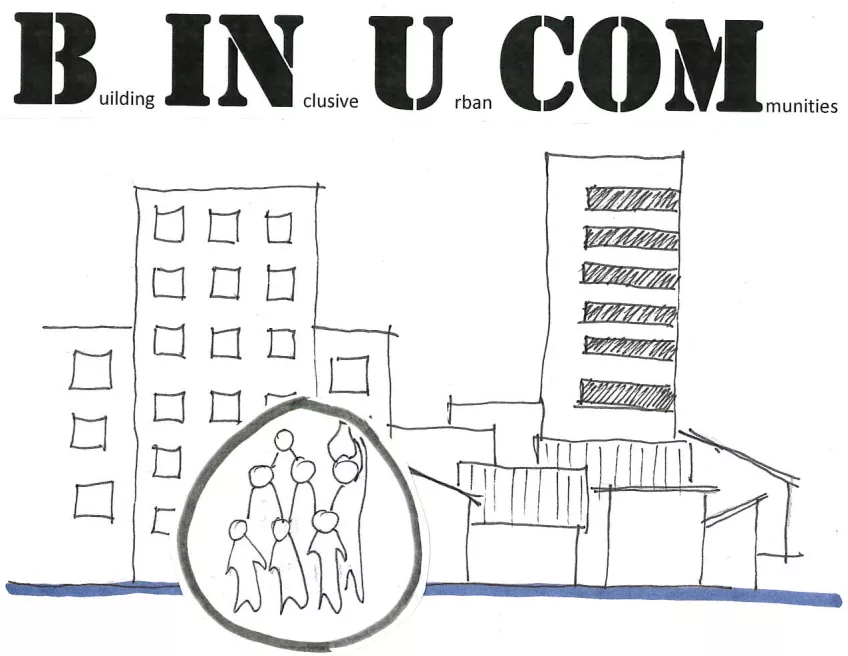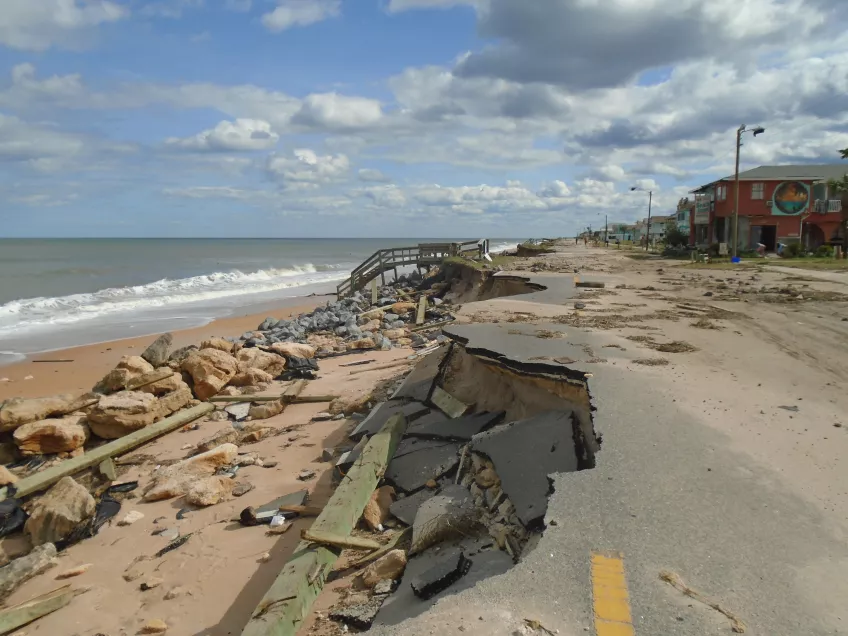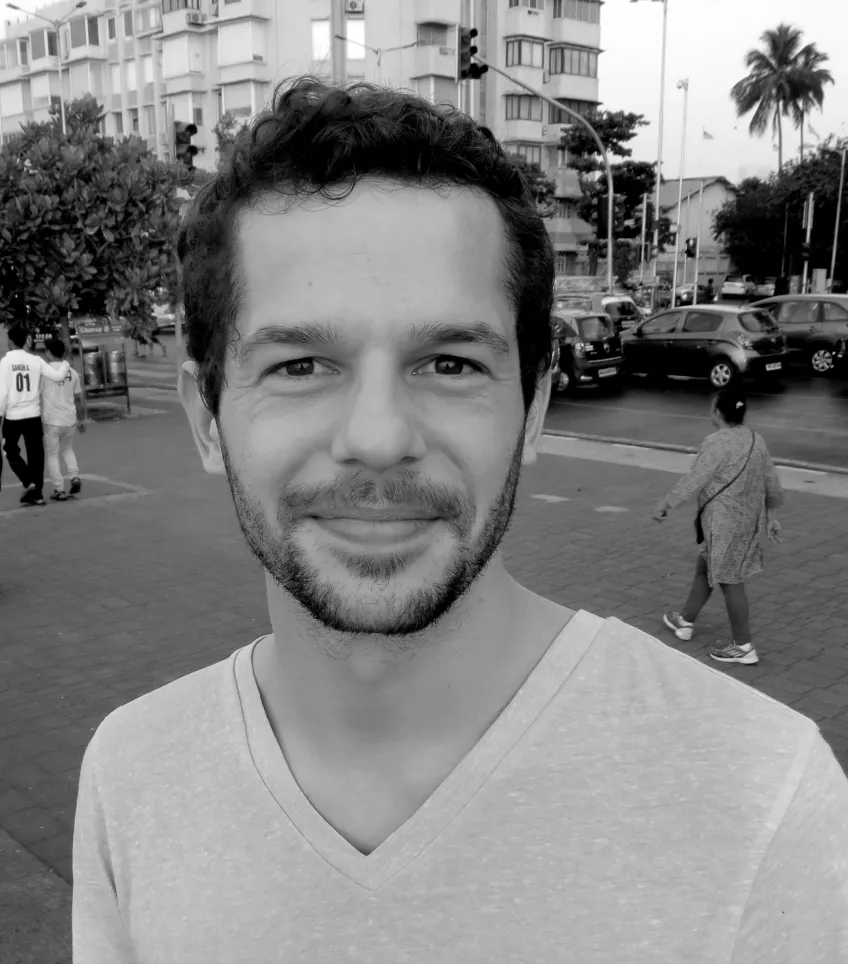What about?
What About? – Features LUCSUS researchers comments on current issues, events and projects.
What About the LUMES Podcast Do You Even Nature?
Do You Even Nature is a podcast exploring the tricky relationship between people and the environment. It was started by LUMES students Cecilia Jaques, Georgia Verkuylen, Tim Bauer and Judith Petra Mühlbacher as part of their Knowledge to Action-project. We take the opportunity to ask Georgia Verkuylen about what they would lilke to achieve with it - and the background to the podast idea!
Tell us about the podcast?
Our idea is to investigate the relationship between humans and the environment. The purpose is to contribute to a larger process of cultural change in which individuals reassess and reorient beliefs and behaviours that constitute unsustainable practices. We have two episodes out currently, Great First Plant, where the host discusses keeping plants in the house with a guest. The second episode dives into the Zoos, visits to two different Zoos and then the second half of the episode the project team discusses the future of Zoos.
Why did you choose this medium?
We had all wanted to explore podcasting and research revealed that story telling through audio is a effective means of self reflexive transformation. It's a really fun medium to work with!
What would you like to achieve?
We hope listeners will reflect on their own relationships with nature and perhaps reveal some problems that we all have with how we perceive nature. For the group we definitely had to be aware of how we perpetuated our own 'cultures of unsustainability' and recognise that we are co-learners throughout this process.
How would you like to develop the podcast idea?
We really enjoyed making the podcast and having established a theoretical basis upon which the first four episodes are grounded upon, we aim to launch off into exploring more ideas and unpacking this topic further.
What About the Preparations for the LUMES Alumni 2017 Conference?
With less than a month to go to the LUMES 2017 Alumni Conference, we ask student coordinator Amanda Elgh to tell us about the preparations for the event.
- We have almost finalised the programme, and we are beginning to get very excited, she says
The conference is based on an inclusive approach.The programme is created by, and for, alumni and students, and is filled with activities initiated, planned and led by them. Examples of events range from climate justice, circular economy, urban development, and alternative energy futures to sessions on the position of a sustainable scientist in the job market and what it means to fail.
- We wanted to create an event that was participatory in nature, to correspond with the ethos of what LUMES and sustainability studies are about. We see the programme as a way for the students to both showcase trends and discuss issues that matter to the area.
Apart from an exciting programme, the conference will offer alumni an arena to interconnect with friends, teachers, and other parts of the university and the city of Lund itself as it is held at the same time as the Sustainability Week. A career fair is also organised jointly with The International Institute for Industrial Environmental Economics (IIIEE).
- We are really looking forward to seeing all of the alumni again in May! And we hope the event will be both inspiring and fun, Amanda concludes.
The conference is part of Lund University's 350-years Anniversary and of the Sustainability Week
What About Building Inclusive Communities for the Urban Poor in India? Christine Wamsler, LUCSUS, explains.
Since 2015, Professor Christine Wamsler, has been involved in the project BINUCOM - Building Inclusive Urban Communities.
Here she explains what the project is about and why she thinks the work is so important.
BINUCOM is about capacity development in Higher Education. The aim of the project is to improve the relevance of Architecture and Planning Education in developing inclusive urban communities in India. Through our work we foster collaboration between different Higher Education Institutes both within and outside India. Together we challenge current teaching approaches and assist new course and curriculum development that take account of societal needs and the complex challenges of sustainable social housing and planning.
Why is it important?
Rapid urbanisation is leading to appalling conditions for the urban poor. India's slum population, a population, who by definition lives in dwellings that are unfit for human habitation, is expected to increase to 104 million by 2017, nearly 10 percent of the projected population.
This means that architects and urban planners face escalating challenges. The situation requires that architecture and planning students receive professional training so they can adequately address informality and poverty and the associated growing social, economic and environmental problems.
What is your role in the project?
My role is to support capacity development in the field of inclusive climate change adaptation and risk reduction. For those that live in slums in cities, the daily challenges are increasingly exacerbated by the impacts of climate change and natural hazards. They are increasingly exposed to the impacts of landslides, flooding, sea level rise, heat stress and other hazards that increase the risks in already vulnerable communities. Together with other LUCSUS staff, last year we organized a thematic workshop and site visits about this topic for all project participants.
Where are you now in the project?
Different thematic workshops and site visits have been carried out. Apart from inclusive climate change adaptation and risk reduction, the topics covered social inclusion, participatory planning approaches and sustainable housing. These workshop provided input for the development of case studies and new course developments at the four partner Institutions in India. Both the case studies and the new courses are currently jointly developed. Regular meetings, workshops and conferences are planned to support this process and disseminate the outcomes over the next two years.
Binucom project coordinator webpage
What about Hurricanes in Florida and the Research by Chad Boda?
In October 2016, Hurricane Matthew destroyed parts of a scenic coastal road in the City of Flagler Beach, Florida. USA. The event intensified a long-standing public debate on how to rebuild the road and its beach again. The options presented by Florida Department of Transportation: a sea wall, and the Army Corps of Engineers: a beach nourishment project, prompted LUCSUS researcher Chad Boda to join the debate.
In January 2017, Chad wrote three opinion pieces for three local papers in the Flagler County area: FlaglerLive, The Palm Coast Observer and the Daytona Beach News Journal.
Why did you join the debate?
I felt that I had a duty to create a more informed debate. As a sustainability researcher I have more knowledge about these issues than the average citizen. I wanted to share my knowledge with the citizens of Flagler so that they have a more accurate picture of what the different options mean for their city and the environment in the long-run.
From my research perspective, I could see that the agencies main focus was on ensuring that the road would not be destroyed again, not on preserving both the road and the beach. Yet, both of the agencies, in different ways, stated to the public that their option would address citizens’ environmental concerns.
I wanted to highlight how these statements were based on selected facts – which do not give an accurate picture. So for example, in my opinion articles, I have illustrated why the Florida Department of Transportation’s option of building a sea wall is not beneficial for the environment. A sea wall can seriously harm the local environment, in particular the population of federally protected, endangered sea turtles in which nest in Flagler Beach. This is because a seawall accelerates erosion which causes the beach to shrink, and when the beach shrinks, the sea turtle nesting habitat eventually disappears.
I have also pointed out why the project to nourish the beach put forward by the Army Corps is only a band-aid solution – and therefore not a viable long-term solution. For example, beach nourishment encourages further development in areas such as Flagler Beach-- which increases the number of people and amount of property that is vulnerable to erosion through sea level rise and coastal storms. Nourishment can also harm the beach and near shore eco-system during construction, and nourished beaches have to be re-nourished every few years which can harm these ecosystems in the long-term.
Finally, I wanted to join the debate to put forward another possible solution for both the road and the beach. My suggested option, which many coastal scientists agree, would be to relocate the road completely. This would allow for the beach to expand – a measure that would make it is easier to adapt to rising sea levels and also provide more habitat and recreational beach.
What do you hope to achieve with your opinion pieces?
I want to create a more level playing field – where the citizens become more informed about what the different options actually mean for their beach and their city. As it stands, both of the agencies present their options in a very specific way which doesn’t always include all the important details. I want to counter that partiality with fact-based scientific information. My hope is that my contribution will help the citizens see the broader picture – since this issue is about more than just the road – it is about the survival of the beach in the long run.
What are your broader thoughts on the relationship between research and social impact?
For me research and social impact go hand in hand. Part of my research is about actively advancing more sustainable solutions - in this case, informing the citizens about the good and bad of the various options presented to them. This perspective, I think, is quite special for sustainability studies, where social impact related activities are an integral part of the research field. I’m glad that I can use my knowledge as a researcher to actually impact on a topical debate – where the decision made can make a real difference on the future of the restoration of the beach and the quality of life for citizens.
Chad Boda is a researcher at LUCSUS. He is currently working with the City of Flagler to develop a beach management plan and implementation strategy to restore and maintain their local beach which has been severely degraded after years of using so called hard measures to control natural erosion.
Read his articles
PalmCoastObserver.com
FlaglerLive.com
DaytonaBeachNewsJournal.com



